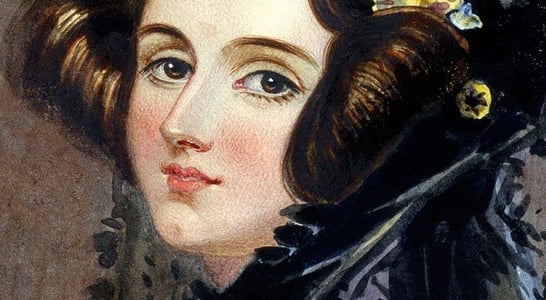
Alexander Graham Bell Day
With just one invention, he changed the world, making long-distance communication possible, and paving the way for modern communication.
Ring ring! Hello? Who’s there?
Take a moment to honor this master inventor of the telephone and other innovations on Alexander Graham Bell Day!
History of Alexander Graham Bell Day
Born in Scotland in 1847, Bell was educated in what is now the UK and then eventually moved to North America in his early 20s.
But even from an early age, Bell was interested and curious about the world around him. By the age of 12 he had invented a de-husking machine that his friend’s family used at their flour mill for many years.
Alexander Graham Bell Day is celebrated on this particular day because it is the anniversary of the day, in 1876, when the patent was granted for Bell’s machine that would eventually become the telephone.
Although he was not the only person to work on such an invention, Bell was the first one to get the patent for this type of machine.
In addition to his work on the telephone, Bell had other accomplishments. He was the second president for the National Geographic Society and also is credited with inventing the metal detector and the Hydrodome, which was a watercraft that was revolutionary at the time.
Also, through the inspiration of his mother who was partially deaf, Bell married a deaf woman and worked with the deaf community all his life.
Alexander Graham Bell Day celebrates the innovation, invention and creativity of those working in the fields of science, engineering, technology and more.
How to Celebrate Alexander Graham Bell Day
Get on board and get inspired by Alexander Graham Bell Day! Consider some of these ways to spend the day:
Get Creative and Innovative
The hope for Alexander Graham Bell Day is that he would be an inspiration and motivator for those who are looking to be innovative and creative with technology today.
Take a class at the local community college. Perform some science experiments in the kitchen or garage. Or get together with a group of tech geeks and learn from their wisdom!
Encourage Innovation in Kids
Alexander Graham Bell Day might be a great time to invest in kids who want to work in STEM (Science, Technology, Engineering and Math) for the future.
Teachers and parents have the perfect opportunity to use this day to inspire their students and kids.
Other community members might want to set up clubs where kids can apply their STEM skills, or even donate to scholarships that will allow a student to attend a STEM camp in the summer or support their college education.
Learn More About Alexander Graham Bell
Even though he is famous for his work, Alexander Graham Bell has many bits about his life that many people don’t know. Celebrate the day with some of these interesting bits of trivia about the inventor’s life:
-
Bell didn’t originally have a middle name, but he wanted one. For his 11th birthday, his father allowed him to adopt his middle name, Graham.
-
Bell faced more than 600 lawsuits over his telephone patent, resulting in one of the longest patent battles in US history.
-
As part of his work with the hearing impaired, Bell connected Helen Keller with her teacher, Annie Sullivan. Keller’s autobiography was dedicated to Bell and the two were lifelong friends.
Alexander Graham Bell Day FAQs
What inspired Alexander Graham Bell to invent the telephone?
Alexander Graham Bell’s mother and wife were deaf, motivating him to work on sound transmission.
He initially aimed to improve hearing devices but ended up creating the telephone. Bell also experimented with sound through musical instruments.
He believed the harmonic telegraph, a multiple-note telegraph device, could improve communication for those with hearing impairments.
Did Bell invent anything other than the telephone?
Bell invented numerous devices, including a photophone, which transmitted sound on a beam of light.
He called it his greatest invention, though it had limited practical use at the time. Bell also designed early versions of metal detectors and an audiometer to test hearing.
Why is Bell sometimes called the “Father of the Deaf”?
Bell founded the American Association for the Teaching of Speech to the Deaf, which promoted oralism over sign language.
Though controversial, Bell’s work significantly impacted deaf education.
His work has mixed reception in the Deaf community, as oralism discouraged sign language use, creating debate about his legacy.
Did Alexander Graham Bell have any unusual habits or quirks?
Bell had an intense daily routine and a love for experimentation that often baffled others.
He would work for hours in his laboratory, even at night, often dressed in unconventional clothing for comfort. Known for his curiosity, Bell once tethered kites to his wheelchair to experiment with wind power.
He was also an early adopter of phonetic alphabets and preferred “Visible Speech,” a phonetic alphabet his father developed, which he believed would help unify languages.
Is it true Bell didn’t want the telephone in his office?
Yes! Despite inventing it, Bell saw the telephone as an interruption. He feared it would distract him from his other experiments.
Instead, he preferred writing letters and meeting in person, leaving the day-to-day operations of his telephone company to others.
What’s the “Bell Telephone Myth”?
A common myth claims Bell’s first words on the phone were “Mr. Watson, come here, I want you.” While this is mostly true, some historians believe the real phrase was slightly different and that Bell later exaggerated it for dramatic effect.
No recording exists, so the exact phrase remains a mystery.
Did Bell really stop working on the telephone after its invention?
After his early success, Bell rarely worked on the telephone. He focused on inventions like hydrofoils and aviation.
Bell’s Silver Dart aircraft was among the first to fly in Canada, and he co-founded the National Geographic Society.
What impact did Bell have on aviation?
Bell’s interest in flight led him to create the Aerial Experiment Association, a group dedicated to studying flight.
They created some of the earliest successful airplanes in North America. Bell’s tetrahedral kites influenced early airplane wing design.
Was Bell the only inventor of the telephone?
Italian inventor Antonio Meucci made a device that transmitted voice-over wires before Bell.
Elisha Gray also filed a patent on the same day as Bell. Legal battles ensued, but Bell won due to the timing and documentation of the patent.
What are some fun ways to learn about Bell’s inventions at home?
Build a simple “telephone” with cups and string to understand sound vibrations. To simulate Bell’s work with light transmission, try a photophone experiment using a flashlight, mirror, and sound receiver.
Also on ...
View all holidaysNational Cereal Day
Start your day off right with a bowl of crunchy goodness, complete with milk and your favorite fruits. It's breakfast time!
National Sock Monkey Day
These soft, colorful, cuddly companions are a fun way to add some personality to any room — perfect for both kids and adults alike!
National Flapjack Day
Providing a perfect opportunity to celebrate something amazing that often gets overlooked, National Flapjack Day is here to encourage the celebration of this simple but incredible little breakfast food.
We think you may also like...
National Aviation Day
Celebrate flight pioneer Orville Wright’s birthday on National Aviation Day by learning about the history of flight, making paper airplanes, or learning to fly yourself.
Ada Lovelace Day
One of history’s most influential figures, Ada Lovelace helped invent the computer. Honor her contributions by learning about her and other pioneering women.
Nobel Prize Day
Celebrating excellence in diverse fields, the Nobel Prize recognizes individuals for their outstanding contributions to humanity's progress.
Yuri’s Night
The first person to orbit the Earth, this trailblazer showed us the potential of humanity's spirit and our drive to explore the unknown.








